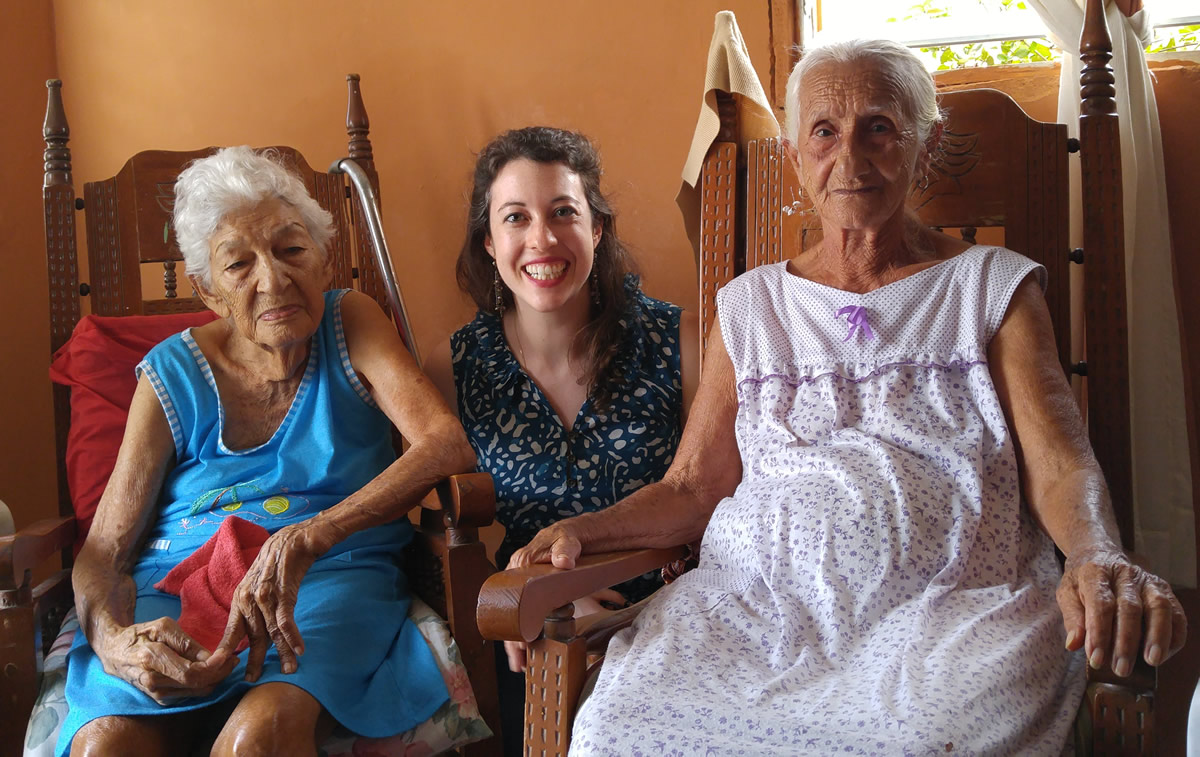The end of slavery doesn’t always mean the end of slavery.
That’s according to Kellogg Institute Dissertation Year Fellow Maria Cecilia Ulrickson (history), who, after six years of digging through archives around the world, found that the freedom granted to slaves in the Caribbean colony of Santo Domingo was often fleeting, if it came at all.
Her dissertation on “Unfree Labor and Constructed Race in Santo Domingo, 1768-1844” covers a turbulent 76-year period when the colony – the present-day Dominican Republic – was controlled by Spain, France, and later neighboring Haiti, which shares the island of Hispaniola. During that time, emancipation came, was reversed, and returned again.
But Ulrickson found that slaveholders often avoided complying with emancipation by hiding evidence that they had slaves. And at times, even free people of African descent were forced into bondage.
“Slaveholders would move to another jurisdiction to maintain control over people who were ostensibly free,” she said. “Other times, they would use legal ambiguities in the law. But other times, there wasn’t enforcement.”
Her research took her to Spain, France, New Orleans, Cuba, the Vatican, and the Dominican Republic, where she poured through old local property and church records, including lists of people who had been baptized by priests. Those lists documented whether they were slaves or former slaves, and if the latter, “what were the qualities and characteristics of their freedom.”
“The strength of my research is that it’s really the first intensely local study of what happens to a formerly enslaved person at the moment of emancipation in a place like this,” she said.
Her work, she said, “seeks to redefine moments of freedom, and seeks to view emancipation and freedom on a spectrum as opposed to a specific moment that it happens.”
Her advisor, Kellogg Faculty Fellow Karen Graubart (history), said the history of Cuba and Haiti’s African-descent populations has been studied more than that of Santo Domingo, and described Ulrickson’s work as a “groundbreaking contribution to an emerging field.”
“Santo Domingo was the site of so much wrangling and warfare that its story is difficult to put together,” she said. “Dominican historians have paid some attention to it, but they have often shied away from the history of race and slavery, in part because of the fraught nature of racial discourse in the modern nation.”
In the Dominican Republic, that racial discourse takes many forms, Ulrickson said, with Dominicans looking down on their neighbor’s African heritage and explaining Haiti’s poverty and underdevelopment as being a byproduct of racial inferiority. Meanwhile, Dominicans emphasize their white European heritage, ignoring the country’s deep ties to Africa.
Her work challenges that perspective, and emphasizes the two nations’ intertwined colonial histories.
“I am providing the scholarship that will allow for the transformation in the way that Dominicans see themselves and see the country next door,” she said.
 Ulrickson’s field of study is personal. Her Dominican-born mother emigrated to the US at age 15, and while almost all of her immediate family has since emigrated, their extended family remains in the Dominican town of Baní – known, she said, for being the whitest town in the country.
Ulrickson’s field of study is personal. Her Dominican-born mother emigrated to the US at age 15, and while almost all of her immediate family has since emigrated, their extended family remains in the Dominican town of Baní – known, she said, for being the whitest town in the country.
Through her research in Baní, she unexpectedly found ancestors of African descent.
“It was this moment of rewriting this family history that I always had, that my Spanish ancestors came to this Spanish town,” she said. “It was a history that has been completely whitewashed, in the literal sense of that term.”
She said support from the Kellogg Institute is helping her bring Santo Domingo’s past to light.
Her first article, about transformations in slaveholding in Santo Domingo and completed during her time at Kellogg, is scheduled for publication next year in The Americas, a journal of Latin American history.
And Kellogg has been “a place where I can deepen my research and meet scholars who will bring my research to new places,” she added.
Those Kellogg Institute scholars have pushed her to articulate the modern impact of her work – something that has become particularly relevant after the Dominican Constitutional Tribunal moved in 2013 to strip citizenship from Dominican-born migrant workers of Haitian descent. That led to the mass deportation of the largely poor laborers from the country.
“It was in part an economic decision, and certainly a decision that comes out of this misremembering of the Dominican Republic’s relationship with Haiti and the Haiti-phobia that has somehow become ingrained in the national narrative,” Ulrickson said.
“I don’t imagine my research is going to be able to stop that kind of tide, but I hope it will influence the next generation of policymakers and become part of that wave of defining the next generation of Dominican-ness.”





